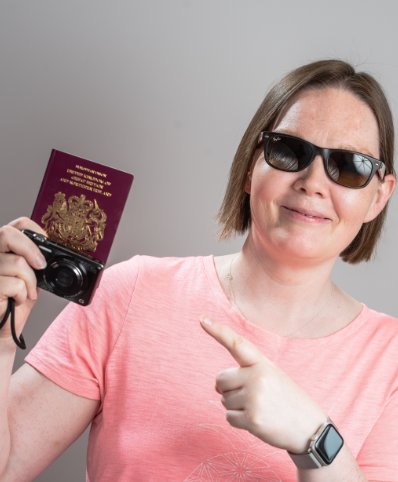9 Crown Row, Bracknell, Berkshire, RG12 0TH




Marketing & Operations Manager
Helen is Nick’s sister and she successfully set up and established our Lettings Department back in 2013. Having spent much of her career prior to DY working in marketing, Helen now heads up our Marketing & Operations department. This suits her organisational skills, creativity and keen eye for detail perfectly! She loves taking long walks with her Labrador Finn and when time permits, travelling and visiting new places around the globe.
Top of my bucket list is…
To visit more new countries and ultimately, travel round Europe in a camper van.
My guilty pleasure…
Ben & Jerry’s cookie dough ice cream – I’ve got a very sweet tooth, for my sins.
When I was younger, I wanted to be…
Less shy.
If I were a superhero, my superpower would be…
To find a cure for cancer and dementia. Here’s hoping.
On Sunday morning, you can usually find me…
Up bright and early for a dog walk!
You might be surprised to know that…
One of my earliest qualifications as a teenager was as a Clarks trained shoe fitter. Ohh, all those back to school shoes!
17 Jul 2018
There are a variety of different types of interests in property. These might take the form of a charge or lien, such as that held by a bank or building society by way of a mortgage. Alternatively, there are easements and wayleaves such as ‘rights of way’ or the right for a utility company to lay power cables across private property or mineral and grazing rights in favour of mining companies or farmers.
However, when people talk about different types of ownership they usually mean either Freehold or Leasehold. A lease is a tenancy and as such it has specific rights and responsibilities attached to it through both common law and statutes such as various Landlord & Tenant Acts.
Freehold interests are the superior interest in England and Wales and, subject to any easements, wayleaves, liens and leases, owning a Freehold interest (or a longer leasehold interest) is what most lay people would consider to be ‘ownership’.
Freehold interests and long leaseholds can be owned by an individual, a company/charity or by up to four individuals. If owned by more than one person the interest can be owned by them as Joint Tenants or as Tenants in Common. This is a legal terminology but the difference between the different type of joint ownership is very important.
Where people own property as Joint Tenants they;
Where joint owners are Tenants in Common on the other hand, they;
Most importantly perhaps, with Tenants in Common, if one owner dies the property does not automatically pass to the other owners but instead forms part of the deceased’s estate and will be dealt with at probate.
You can usually elect which type of joint ownership you prefer and it is important that you take advice on the subject as getting this formality wrong can be very expensive and cause unintended injustices, especially if you die.
It’s worth noting that if you own a property jointly with a former spouse you might want to consider changing the way the property is owned. This is usually addressed by lawyers at divorce, but make sure to ask.
Related article:
Get in touch